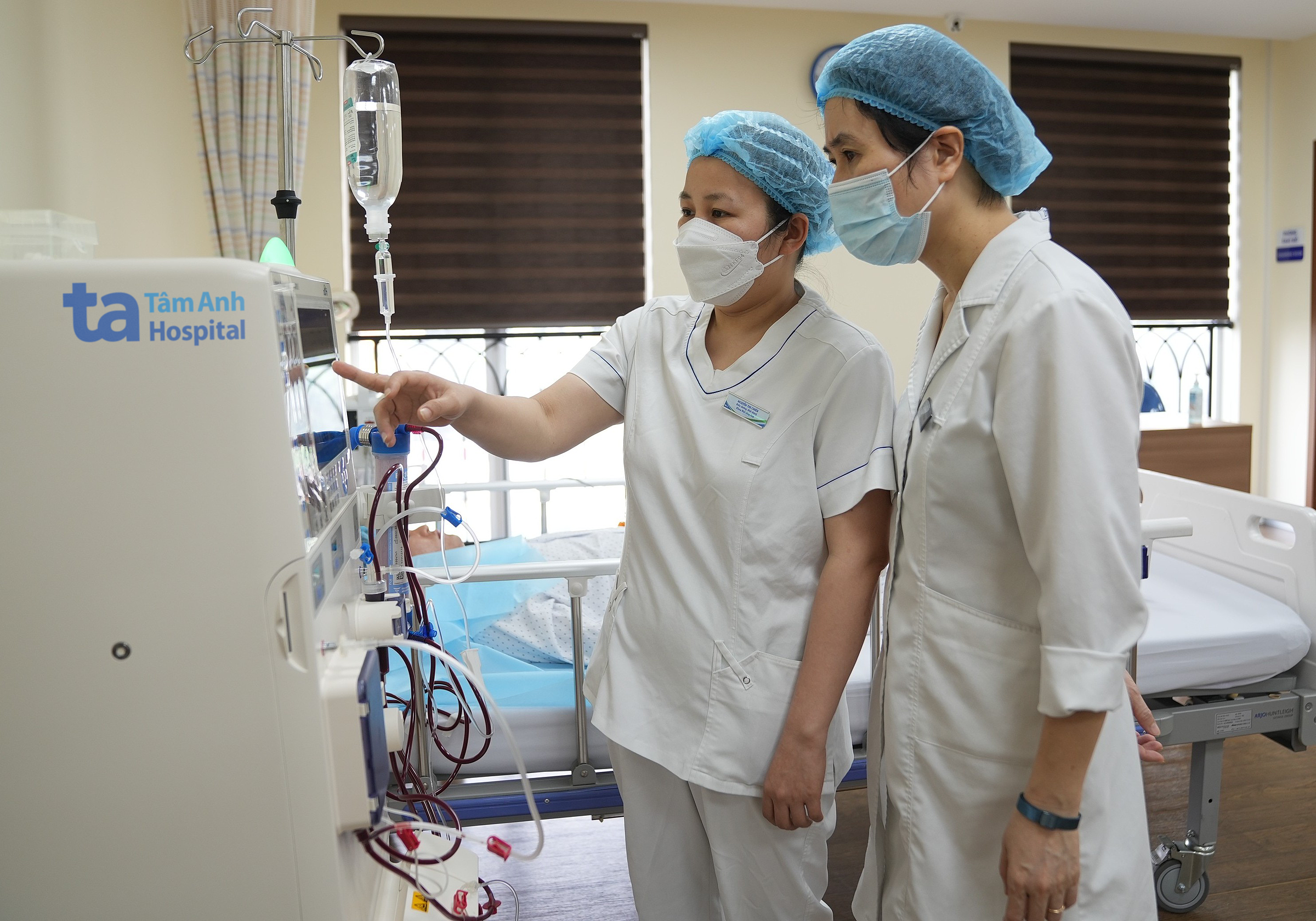Elevated urine protein and blood creatinine levels are early warning signs of chronic kidney disease, according to Dr. Mai Thi Hien, Deputy Head of the Nephrology and Dialysis Department at Tam Anh General Hospital in Hanoi. Manh experienced these symptoms, along with fatigue and insomnia, but didn't seek specialized medical attention for a year. "These signs are often overlooked or mistaken for other conditions," Dr. Hien said.
Manh finally went to the hospital when he experienced persistent fatigue, loss of appetite, decreased urine output, mild leg swelling, and uncontrolled high blood pressure. Dr. Hien diagnosed him with stage 4 chronic kidney disease, nearing end-stage renal failure, where kidney function cannot be restored through medical treatment.
 |
Dr. Hien and a nurse check dialysis equipment. Illustrative photo: *Tam Anh General Hospital* |
Manh is currently undergoing conservative treatment and may require regular dialysis or a kidney transplant in the future. He needs to manage his blood pressure and follow a strict diet, controlling his protein, potassium, sodium, water, and phosphorus intake. He should prioritize foods rich in antioxidants, healthy fats, and fiber while limiting those high in fat, sugar, and preservatives. Doctors are closely monitoring his condition and providing multi-disciplinary care to manage potential complications.
Chronic kidney disease is a condition characterized by kidney damage lasting over three months, gradually reducing the organ's ability to filter blood, excrete waste, and regulate the body's internal environment. According to Dr. Hien, most cases in the early stages go undiagnosed due to vague symptoms easily confused with common ailments like fatigue, poor appetite, insomnia, and frequent nighttime urination. Only in stages 4 and 5, when kidney function is severely impaired, do more noticeable symptoms appear.
Dr. Hien recommends regular kidney function screenings and advises against ignoring abnormal blood and urine test results, especially for those with high blood pressure, diabetes, or a family history of kidney disease. Proteinuria, or high levels of protein in the urine, indicates kidney damage and is one of the earliest signs of chronic kidney disease, particularly in individuals with underlying conditions like high blood pressure and diabetes.
Creatinine is a waste product of muscle metabolism, filtered by the kidneys and excreted in urine. Normal creatinine levels for adult males are around 0.7-1.3 mg/dL, and 0.5-1.1 mg/dL for females. Elevated or slightly increased creatinine levels in blood tests may not cause immediate symptoms but signal a decline in kidney filtration function.
Early detection of chronic kidney disease allows for effective management and can slow its progression, potentially maintaining stable kidney function for many years. "A delay of just six months to a year can lead to a stage where medical intervention is no longer possible, requiring lifelong dialysis or a kidney transplant," Dr. Hien warned.
Minh Duc
*The patient's name has been changed.
| Readers can submit questions about kidney disease here for doctors to answer. |












